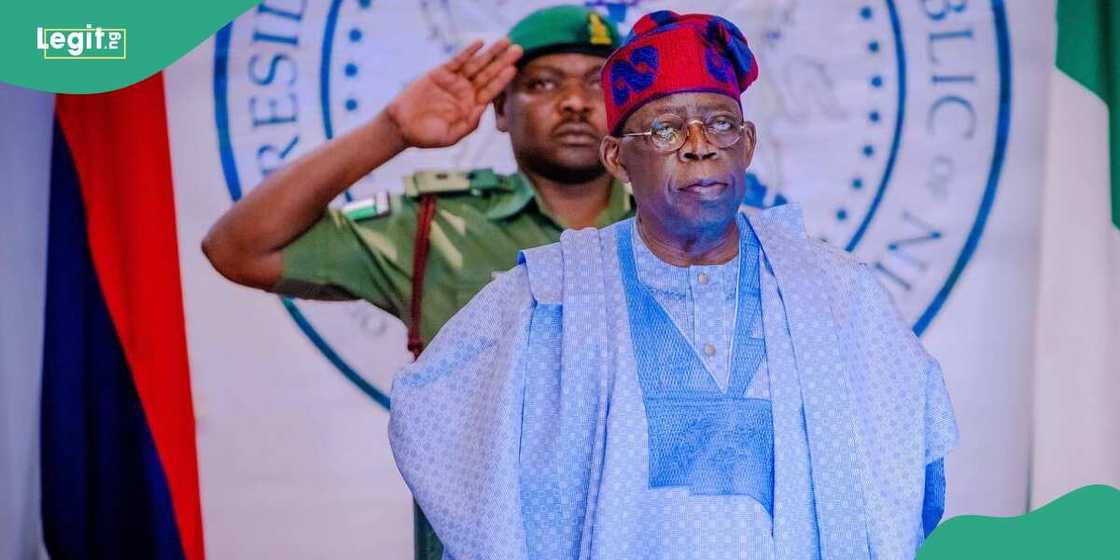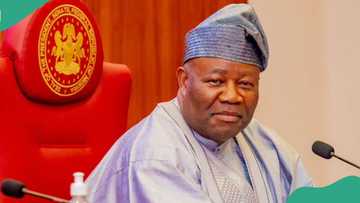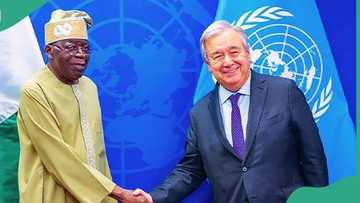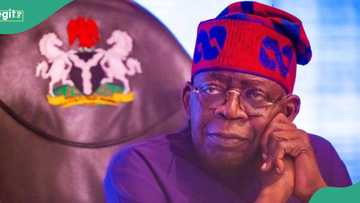100 Days in Office: 3 Strong Issues Troubling Tinubu’s Government
State House, Abuja - President Bola Ahmed Tinubu is dealing with a lot of issues he inherited from his predecessor, President Muhammadu Buhari.
Unlock the best of Legit.ng on Pinterest! Subscribe now and get your daily inspiration!
On Monday, May 29, 2023, Tinubu announced an end to fuel subsidy removal, this particular move has birthed a lot of challenges for the ruling All Progressives Congress (APC) government, one they didn't see coming.

Source: Facebook
These issues however have contributed to his slow pace of delivery in the nation's polity, three months after assuming power.
Although Tinubu made a lot of promises to Nigerians and vowed to fulfill them, but with the recent developments, the president is struggling to handle the grappling economy, insecurity, and a weakening currency to mention but a few.
This article presents three major issues the Tinubu's-led federal government is trying to solve three months after taking over the helms of affairs:

Read also
100 days: ‘N2m enjoyment allowance’, impeachment, other controversies of Akpabio-led Senate
PAY ATTENTION: Share your outstanding story with our editors! Please reach us through info@corp.legit.ng!
1. Subsidy removal palliative
The fuel subsidy removal in Nigeria announced by President Bola Tinubu on Monday, May 29, 2023, has led to a rise in the country's inflation, reduced economic welfare, an increment in the cost of living, cost of transportation fare, and cost price of goods.
In a twist, Tinubu who is worried about Nigeria's wellbeing, announced a N5 billion palliative for each state of the federation, including the Federal Capital Territory, to cushion the impact of the removal of the petrol subsidy.
This however has not seen the light of day as Nigerians are groaning daily calling on the government to reverse its decision as experts noted that the palliative will not solve the disturbing development.
2. Nigeria Labour Congress (NLC)'s major demand

Source: Twitter
One of the challenges confronting President Bola Tinubu's government is the pending issues of the Nigeria Labour Congress (NLC).
The NLC is asking the federal government to increase the minimum wage from N30,000 to between N150,000 and N200,000, but the negotiation is still ongoing as but experts noted that the demand is unrealistic following Nigeria's current economic crisis.
Meanwhile, the NLC and the Trade Union Congress of Nigeria (TUC) recommended palliatives for workers and vulnerable groups to ameliorate the harsh effects of fuel subsidy removal by Tinubu, however, Tinubu has pleaded with Nigerians and the Union, to exercise patience with the economic challenges the country is facing, even as he unveiled policy measures to tackle them.
3. Niger, Gabon coups

Source: Twitter
President Bola Tinubu is handling two tasks in the polity; he is a Nigerian leader and the chairman of the Economic Community of West African States (ECOWAS). '
President Tinubu is not done handling the Niger coup crisis, he is faced again with the Gabon coup crisis.
Although Tinubu maintained he is frightened by the recent development in Gabon but he is also struggling to deal with the Niger Junta, who maintained that the issue of returning President Mohamed Bazoum into power won’t work.
Lawyer rates President Tinubu's performance after 1 month in office
Prominent Nigerian lawyer, Barrister Oluwole Moses has commended President Bola Ahmed Tinubu’s one month in office, hailing the administration’s decision in championing major reforms in the nation's economy.
Barrister Moses described the president as a great performer whose major decisions in the last month resonate with the yearnings of most Nigerians.
In a chat with Legit.ng on Wednesday, June 5, the legal luminary said,
"President Ahmed Bola Tinubu has made major decisions that resonate with the yearnings of most Nigerians in the past first month of his presidency, and this, no doubt, has contributed to what people rate as his performance in office."

Read also
“We mustn’t use human rights against them”: Tinubu reveals how UN can protect African Nations
Nigerian bank, companies raise employees' salaries to reduce hardship
As inflation and the cost of living continue to rise, a growing number of businesses are taking proactive steps to mitigate the impact on their employees.
Recognizing the importance of retaining a motivated and productive workforce, many companies have started to increase workers' salaries, aiming to alleviate the financial burdens faced by their employees.
Findings by Legit.ng have revealed that some of the companies displayed a magnanimity of salary increases to as much as 100%.
Source: Legit.ng




